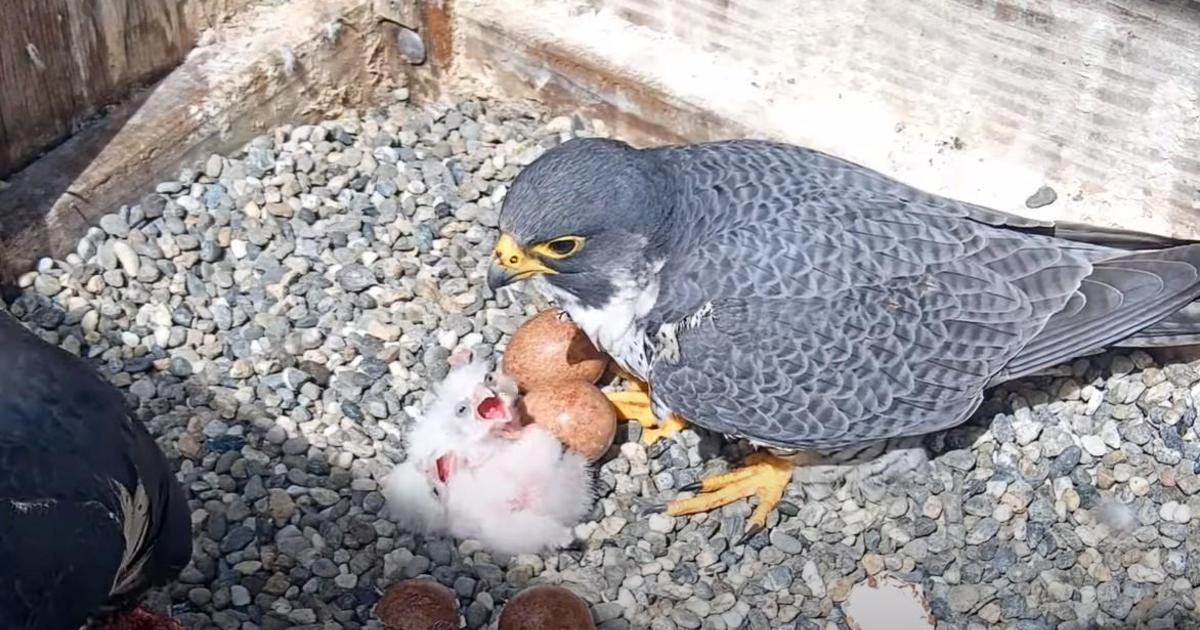Human Germs, Bacteria Seen As Weapons In War Against Cancer
SAN FRANCISCO (KPIX) -- Bay Area scientists are on the hunt to discover how a person's own germs may be the best medicine in the war against cancer.
A year ago, University of California, San Francisco registered nurse Audra Katz was diagnosed with breast cancer. But before she got treatment, she gave a stash of her germs to UCSF Medical Center.
"They gave me the kit. I was able to do it at home. It was a couple of swabs," said Katz.
Using a special kit from San Francisco-based biotech company uBiome, Katz took samples with a swab from her mouth and her gut, and handed researchers a treasure trove.
Katz's microbes, along with samples from other breast cancer patients, may hold the key to diagnosing, treating, even preventing the disease.
"I think that we will find that they hold a key place in our understanding of cancer," explained Dr. Laura Esserman, Director of the Carol Franc Buck Breast Care Center at UCSF, and co-leader of the UCSF Breast Oncology Program.
About 100 trillion microbes, about two to six pounds worth, live in or on the human body.
Bacteria, fungi, viruses and other organisms in our body are not all bad, and most are beneficial and hard-working, according to Dr. John Swartzberg, Professor Emeritus at UC Berkeley's School of Public Health.
Swartzberg said they help make vitamins, break down food, teach our immune system to recognize danger, and even produce anti-inflammatory compounds. "These organisms are absolutely necessary to be living in us in order for us to survive," he said.
These good and bad germs typically mix without problem and co-exist in peace. But in women with breast cancer, the mix is off.
In one study, their breast tissue had lower levels of a protective germ, and higher levels of possibly damaging microbes.
"There are differences in the breast tissue of people who have cancer compared to people who don't," said Esserman.
Dr. Esserman is overseeing the research involving breast cancer and our germs - called the microbiota or microbiome - at UCSF.
There are all kinds of colonies of bacteria that live synergistically in our bodies, and while much is unknown, one known way to mess them up their mixture is through antibiotics, said Esserman
"Antibiotics used inappropriately are extremely dangerous because they alter our microbes," said Esserman.
Esserman further explained that cultures that get rid of bacteria are plagued by autoimmune and allergic diseases, and research shows women who use lots of antibiotics are at an increased risk of breast cancer.
Doctors now wonder whether cultivating or maintaining a healthier mix of microbes could reduce the risk. There is a lot of work that needs to be done to answer this question.
That's one reason why the National Institutes of Health is also now involved. NIH has created the Human Microbiome Project. Federal scientists are now collecting all the microorganisms living in association with the human body and hope to study them, raising the possibility that one day they could be used to treat disease.
"Will that help us prevent breast cancer?" wondered Esserman. "That's actually the question of the day."
Another big question for researchers is whether you can manipulate your microbiota to improve cancer treatments.
"Our therapies are good but they can always be better," said Dr. Ami Bhatt, Professor of Medicine and Genetics at Stanford Medical School, where she runs the Bhatt Lab.
"I'm very excited about investigating whether or not we can turn up the effectiveness of certain drugs that we know are pretty good in cancer by changing the composition of the gut microbiota," said Bhatt.,
In the meantime, knowing what they know, Bhatt and her team have changed their own lifestyles. "I am actually very loath to take antibiotics unless I really need them," said Bhatt.
They eat more plants and fewer processed foods; it's what our microbes prefer.
"Maybe I should go home and eat more fiber. Or use fewer products with antimicrobials," laughed Stanford researcher Fiona Tamburini
"I'm a lot more health-conscious, knowing what my microbes need," added fellow researcher Jessica Ribado. While Ribado said she likes donuts, she'll eat whole grain oatmeal instead to feed her microbes the good fiber they deserve.
As for Katz, she happily volunteered to donate her germs to study in order to possibly help women in the future.
"These microbes, they're there. We need to figure out how to access them to potentially help us," said Katz.



